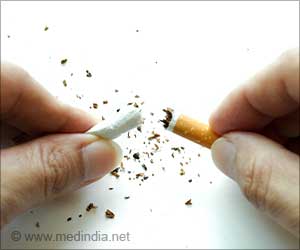Hospitalization on account of alcohol-related injuries or disease is on the upswing in Australia. Many attribute the phenomenon to lax laws.
Hospitalization on account of alcohol-related injuries or disease is on the upswing in Australia. Many attribute the phenomenon to lax laws.
The report from the National Drug Research Institute at Curtin University in Perth found risky drinking was responsible for a 30 percent rise in the number of people admitted to hospital for preventable illnesses and injuries.The relaxation of drinking laws in southeastern Australia appears to have fuelled a dramatic spike of up to 77 per cent in such hospitalizations.
Researchers conducting the biggest study for 10 years into the harmful effects of alcohol in Australia found that while deaths from drink fell by a quarter in the decade since their first report, hospitalisations soared -- with the steepest rises in states that had loosened drinking laws the most.
The biggest increase was in Victoria, where the numbers doubled from 11,571 to 23,144 over the decade. Over the same period, the number of licensed premises in Victoria rocketed from 2000 to 24,000, the report said.
Once the figures were adjusted to take account of shifting age patterns, the increase in alcohol-related hospitalisations was found to be 77 per cent in Victoria, 64per cent in the ACT, 58 per cent in Tasmania and 26 per cent in NSW. All four figures are far greater than the rises seen for non-alcohol-related hospital admissions, which were 34 per cent, 9 per cent, 27 per cent and 8 per cent respectively.
An associate professor at the Perth-based NDRI, Tanya Chikritzhs said liquor law liberalisation in NSW and the ACT had sparked a marked extension of licensing hours and a growth in the number of round-the-clock licences. Although NSW froze the number of 24-hour licences last November, about 460 of the 620-odd 24-hour licences thought to exist nationwide were in NSW, Professor Chikritzhs said.
Advertisement
The report "clearly indicates we have a long way to go in addressing alcohol-related problems in this country", Professor Chikritzhs said.
Advertisement
"Every week, on average, risky or high-risk drinking is killing more than 60 Australians and putting another 1500 people -- the equivalent of a small town -- in hospital, due to injury or disease that is entirely preventable," Professor Chikritzhs said.
Australian Medical Association president Andrew Pesce said the findings were "very disturbing and should be a big reality check for the Australian government and the community".
However, the alcohol industry defended liquor liberalisation.
"If you just increase the number of licensed premises without also matching that with increased policing and liquor licensing enforcement, you are very likely to see some appalling behaviour in the streets," said a spokesman for the Distilled Spirits Industry Council of Australia.
Meantime Brendan Fevola, a prominent football star, has been slammed for his drunken bout Monday. He was spotted vomiting, swearing, throwing beer, simulating sex acts and molesting women at a bar in Melbourne.
Deputy Commissioner Walshe said Fevola had undermined the new Championship Moves responsible drinking campaign aimed at getting young people to look after themselves and others while drinking.
"I just see that as disappointing. I think a lot of people, young people, do look up to our sporting heroes and our sporting stars," Walshe said.
Writing in the Herald Sun, University of Melbourne Professor Rob Moodie, chairman of the Federal Government's Preventative Health Taskforce, said Fevola had a major problem with alcohol: "The more he drinks each episode the more likely he'll end up injured and dead, and the more often he drinks the more likely he is to develop long-term alcoholism."
Source-Medindia
GPL/L







